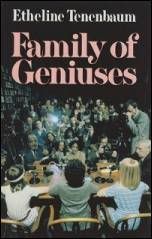Thursday, July 28, 2011
Wednesday, July 27, 2011
A list of things banned by al-shabaab
'The Structural Patterns and Binary Divisions of Prohibitory Lists Issued by Terrorist Militias in the Horn of Africa'
Tuesday, July 26, 2011
The Chinese
Monday, July 25, 2011
Slavoj Žižek's lecture in Tel Aviv
frameborder="0" allowFullScreen="">
Friday, July 22, 2011
What is this about?
Thursday, July 21, 2011
The Jews
The second point about this is something you mentioned about this blog, that it is success through failure, which is an idea I've never really come across, but since you mentioned it I've come to recognize it as a definable strategy common amongst many Jewish artists and creative types. Marc Maron started the podcast after he divorced from his wife in his mid-40's, was broke with no immediate career prospects after devoting 20 years of his life to comedy, it was an act of reaching out and desperation in that it was the only thing he had available to him at the time-why not just interview his comedian friends in his garage and put it out onto the internet and from that over the last few years has become wildly successful and managed to put his career back on track. Success through failure.
There's this poet Kenneth Goldsmith, who Dj's as Kenny G on WFMU and is the guy who started ubuweb who was recently invited to Michelle Obama's poetry night in the Whitehouse who I am presuming is Jewish and whose seminal work is 'Fidget' which documents precisely every sensation in his body for a 13 hour period of time doing nothing in his office, it's like a literary equivalent of Cage's silence. According to wiki his work is concerned with 'Uncreativity as Creative Practice'. Success through failure.
Is this a Jewish thing? I made a mental list of all the great Jewish artists and intellectuals and I feel like there's a pattern from Kafka to Larry David. And if so, is this a strategy you should be pursuing at the moment?
And on the topic, what the fuck is this film meant to be? It's like the worst movie ever but all the characters have been replaced by Hasidic Jews and everything automatically becomes comical.
[http://www.youtube.com/watch?v=9OrjeUDYIc4]
And did you see the trailer for Spielbergs Tintin movie? Obviously no one told him about the uncanny valley.
Wednesday, July 20, 2011
Emergency infrastructure
Tuesday, July 19, 2011
PHD Game



Hauntology
but would you consider internet art as a form of hauntology?
Ariosto and the Arabs - Borges
No man can write a book. Because
Before a book can truly be
It needs the rise and set of the sun,
Centuries, arms, and the binding and sundering sea.
So Ariosto thought, who to the slow pleasure
Gave himself, in the leisure of the roads
With the shining statuary and black pines,
Of dreaming again on things already dreamed.
The air of his own Italy was dense
With dreams, which recalling and forgetting,
With shapes of war that through harsh centuries
Wearied the land, plaited and schemed.
A legion that lost itself in valleys
Of Aquitaine into ambush fell;
And thus was born that dream of a sword
And a horn that cried in Roncesvalles.
Over English orchards the brutal Saxon
Spread his armies and his idols
In a stubborn, clenching war; and of these things
A dream was left behind called Arthur.
From the northern islands, with the blind
Sun blurring the sea, there came
The dream of a virgin, waiting in sleep
For her lord, within a ring of flame.
From Persia to Parnassus — who knows where? –
That dream of an armed enchanter driving
A winged steed through the startled air
And suddenly into the western desert diving.
As if from this enchanter's steed
Ariosto saw the kingdoms of the earth
All furrowed by war's revelry
And by young love intent to prove his worth.
As if through a delicate golden mist
He saw a garden in the world that reached
Beyond its hedge into other intimacies
For Angelica's and Medoro's love.
Like the illusory splendors that in Hindustan
Opium leaves on the rim of sight,
The Furioso's loves go shimmering by
In the kaleidoscope of his delight.
Neither of love nor irony unaware,
He dreamed like this, in a modest style,
Of a strange lone castle; and all things there
(As in this life) were the devil's guile.
As to every poet what may chance –
Or fate allot as a private doom –
He traveled the roads of Ferrara
And, at the same time, walked the moon.
The dross of dreams that have no shape –
The mud that the Nile of sleep leaves by –
With the stuff of these for skein, he'd move
Through that gleaming labyrinth and escape;
Through this great diamond, in which a man
May lose himself by the hap of the game,
In the whereness of music drowsing,
Be beside himself in flesh and name.
Europe entire was lost. By the working
Of that ingenious and malicious art,
Milton could weep for Brandimarte's
Death and Dolinda's anguished heart.
Europe was lost. But other gifts were given
By that vast dream to fame's true scions
That dwell in the deserts of the East,
And the night that was full of lions.
The delectable book that still enchants
Tells of a king who, at morning's star,
Surrenders his queen of the night
Before the implacable scimitar.
Wings that are shaggy night, and cruel
Claws that an elephant grip,
Magnetic mountains that with loving
Embrace can shatter a ship,
The earth sustained by a bull, the bull
By a fish; abracadabras, and old
Talismans and mystic words
That in granite open caves of gold;
This the Saracen people dreamt
Who followed Agramente's crest;
This the turban'd faces dreamed
And the dream now lords it over the West.
And Orlando is now a region that smiles,
A country of the mind for miles
Of wonders in abandoned dreams;
And not even finally smiles, but seems –
By the skill of Islam, brought so low
To fable merely and scholarship,
It stands alone, dreaming itself. (And glory
Is oblivion shaped into a story.)
Through the window, paling now, the quivering
Light of one more evening touches the book
And once again the gilding on the cover
Glows and once again it fades.
In the deserted room the silent
Book still journeys in time. And leaves
Behind it — dawns, night-watching hours,
My own life too, this quickening dream.
Saturday, July 16, 2011
How to Stop Worrying and Learn to Love the Internet
I haven't gone through the article completely yet, but does this set off warning bells-the idea of internet being natural to people born into it and that's it's making us like villages. Are we in the process of witnessing the fermentation of a new ideology, where it is assumed that the internet and its various manifestations are becoming 'naturalized', I guess it's fairly innocent now but could it get to a point somewhere in the future where certain coercive arms of the internet become enforced as natural. And the idea of it turning us into villagers, is there an element of nationalist myth making, where we're all returning to a pre-lapsarian, innocent earlier era through this liberating new /ideotechnology?
[http://www.douglasadams.com/dna/19990901-00-a.html]
Thursday, July 14, 2011
Tuesday, July 12, 2011
zizek records
Sunday, July 10, 2011
Thursday, July 7, 2011
Wednesday, July 6, 2011
Tuesday, July 5, 2011
Kondratiev Wave
What remains from the religious painting tradition?
Monday, July 4, 2011
Sunday, July 3, 2011
The ghosts of communism continue to haunt East Germany. Yet changes are afoot
Sent to you by gav via Google Reader:
South-West of Berlin, an hour by train, reveals a small town called Beelitz, renown for its cultivation of white asparagus. In the middle of woods around Beelitz-Heilstätten, a district in the town, stands a huge hospital complex of around sixty buildings, the majority abandoned for ten years.
First a sanatorium, the complex was a military hospital (see panel top right of page one attached), before being took over by the Soviets in 1945. After their departure in 1995 – by which time the Soviet Union had dissipated – attempts were made to privatise the complex. Instead, the majority of the place was simply left to rot in 2000, with only certain buildings still operational as a neurological rehabilitation centre.
The ghost-like feel of the area led to the film The Pianist being shot here. Walking around the area, what's striking is the sheer size of the complex. The various smaller buildings resemble a bomb site, with the roofs looking as if they will cave in any moment, while a decaying Trabant car stands outside, the guts of its engine ripped out and the windows smashed in.
Walking around one of the larger main buildings, the eerie sound of doors slamming, blown by the breeze, can be heard in the distance. Winding corridors reveal rooms full of defunct equipment and peeling walls. Slogans in Russian are joined by graffiti in German. At the side of some stairs leading up, someone's daubed "Romantic pictures?" sardonically. The smell of decay and of things falling apart as nature reasserts its hold fills the building.
Beelitz-Heilstätten serves as a reminder that since reunification in 1990 the population of East Germany has decreased, leaving a large amount of empty housing – a situation that has led to the phenomenon of "shrinking cities". In the town of Dessau-Roßlau (Dessau-Rosslau), population approx. 90,000, located in the state of Saxony-Anhalt, many school, business and residential buildings remain empty, decimated by demographic change. Saxony-Anhalt as a whole has lost around seventeen per cent of its population since 1989.
Yet the phenomenon has not gone unnoticed. The State Government began an eight-year experiment from 2002 onwards, finally completed by 31st December 2010, entitled the International Building Exhibition (IBA) Urban Redevelopment Saxony-Anhalt 2010 – "not an exhibition in the traditional sense", as IBA's still active website puts it. Rather, "the IBA exhibits are or will become built reality. " In other words, the regeneration of the whole state was the 'exhibition', which aimed to turn "all of Saxony-Anhalt into a laboratory for the city of tomorrow". In practice, this has involved a number of radical ideas for nineteen cities in the state, including that of 'city islands' in Dessau-Rosslau, separated from each other by cultivated landscape, and of 'scenic zones' where previously vacant industrial areas had been transformed into meadows within the town, replacing demolished empty buildings. Meanwhile, bike lanes have been set up to easily traverse these areas. Furthermore, citizens have been given the chance to sponsor specific plots of land, and be entrusted with their maintenance.
The IBA scheme has shown what can happen when inspired and forward planning is applied to neglected areas, in which local people benefit equally from the schemes. It's something that Britain could do well to emulate in some equally run-down areas of the United Kingdom. The development of the London Docklands and the Thames Barrier Park are mini-examples of where the Government has achieved this. Yet a combination of bureaucracy and imminent Government public cuts may ensure that such initiatives may never happen again for the foreseeable future within the UK.
| Attachment | Size |
|---|---|
| Article on EGermany housing (page 1).jpg | 95.73 KB |
| Article on EGermany housing (page 2).jpg | 89.59 KB |
Things you can do from here:
- Subscribe to Mute magazine - culture and politics after the net using Google Reader
- Get started using Google Reader to easily keep up with all your favorite sites












